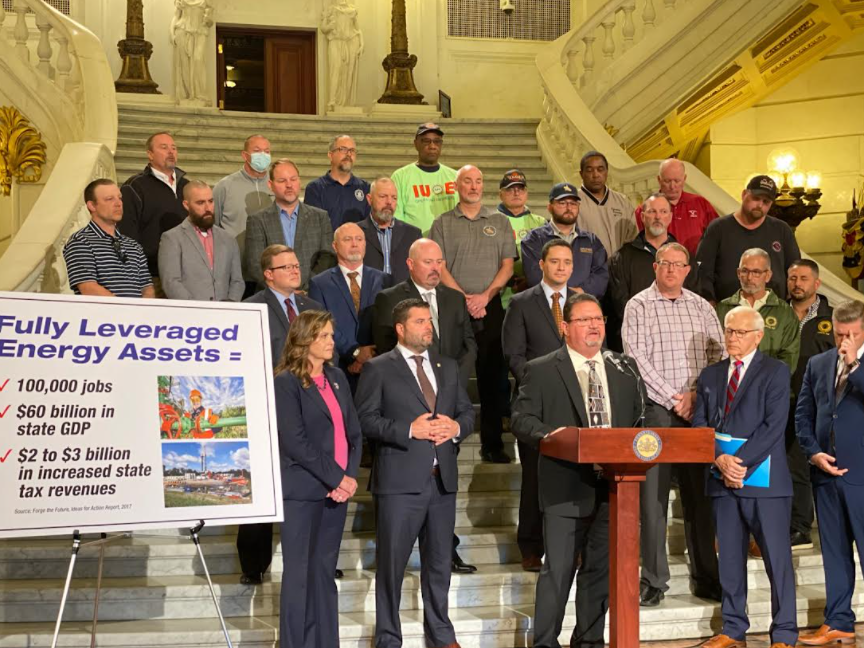HARRISBURG – Members of the Pennsylvania Energy Infrastructure Alliance, including
Steamfitters Local 420, the International Union of Operating Engineers Local 542 and
LiUNA, joined state Sens. Camera Bartolotta (R-Washington), Gene Yaw (R-Lycoming),
John Yudichak (I-Luzerne) and Devlin Robinson (R-Allegheny) at a Capitol news
conference today to highlight the importance of responsible natural gas development
and the good-paying jobs and lower energy costs associated with related infrastructure
investments.
According to the most recent data from the U.S. Energy Information Administration
(EIA), Pennsylvania still ranks second in natural gas production but is closing in on Texas,
the top gas-producing state in the country. Year to date, Pennsylvania produced 3.15
trillion cubic feet of natural gas while Texas has produced 4.118 trillion cubic feet — the
closest the margins have ever been.
“Continued investments in energy infrastructure to safely and responsibly deliver these
natural gas liquids to market is essential,” said James P. Gallagher, Assistant Business
Manager for Steamfitters Local 420. “Increasingly, new pipeline projects are delivering
both short-term employment benefits from construction, and long-term economic
benefits from increased access to affordable natural gas and natural gas liquids.”
Continued development of the state’s natural gas resources is essential, with U.S.
households already projected to see heating bills jump as much as 54% compared to last
winter. At the news conference, the senators challenged any ill-conceived call for a
moratorium on natural gas development that not only would exaggerate energy costs
on consumers but also be detrimental for the environment and affect good-paying jobs
across the Commonwealth.
With the safe, efficient transport of natural gas through pipelines to wider markets,
electric sector-related emissions greatly decreased since 2005 as natural gas production
and use has increased. This has led to cleaner air across the commonwealth.
Greenhouse gas emissions in 2019 (after accounting for sequestration from the land
sector) were 13 percent below 2005 levels, according to the U.S. Environmental
Protection Agency. Going beyond fewer carbon emissions, natural gas production has
led to a decline in volatile organic compounds, according to Pennsylvania Department of
Environmental Protection data.
“Reliance on transitioning to natural gas to meet Pennsylvania’s growing energy
demands has obvious environmental advantages that cannot be ignored,” said Matt
Toomey, C-Branch Business Representative with IUOE Local 542. “Development of this
homegrown resource has national and even global ramifications.”
It also means a lot to consumers. Increased production of abundant, affordable natural
gas saved Pennsylvania consumers more than $32.1 billion from 2008-2018, according
to a Consumer Energy Alliance report, “How Pipelines Can Spur Immediate Post-COVID
Economic Recovery.” Residential users alone saved almost $13.8 billion. Based on
current population estimates, that equals to more than $1,077 per citizen. Pennsylvania’s small businesses and industries, including plastics and steel
manufacturing facilities, saved more than $18.3 billion.
These savings bring relief to Pennsylvania’s families and keep the state’s industries
competitive and its jobs abundant.

